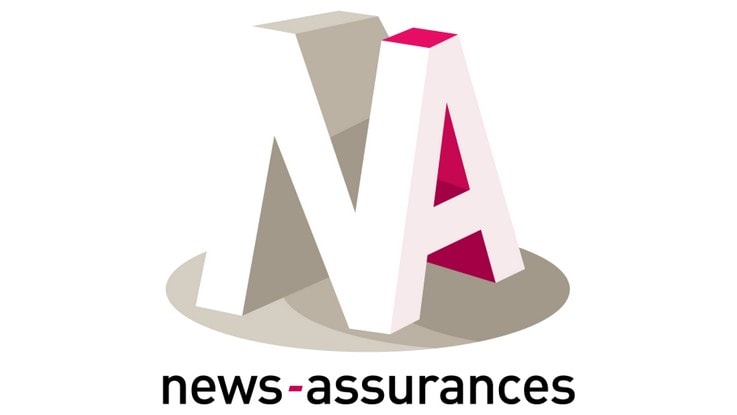Cryptocurrency Lawyers
Beaubourg Avocats Law Firm has developed expertise in several areas, including cryptocurrency law.
Cryptocurrency law covers a range of legal issues, including tax treatment, money transmission regulations, consumer protection, and the prevention of illegal activities such as money laundering and fraud.
We would be delighted to put our skills at your disposal to assist you in both advice and litigation.

Transparent fees

Availability

Expertise
Do not hesitate to contact us to explain your situation.
Contact us
Frequently Asked Questions
What is Cryptocurrency Law ?
Cryptocurrency law refers to the legal framework that governs the use and development of cryptocurrencies, which are digital or virtual currencies that use cryptography for security.
Cryptocurrency law covers a range of legal issues, including tax treatment, money transmission regulations, consumer protection, and the prevention of illegal activities such as money laundering and fraud.
Cryptocurrency law is a rapidly evolving field, as cryptocurrencies continue to gain popularity and new issues arise.
The goal of cryptocurrency law is to provide a legal framework that protects consumers, businesses, and the public interest while also promoting innovation and growth in the cryptocurrency sector.
Cryptocurrency law covers a range of topics, including the treatment of cryptocurrencies for tax purposes, the regulation of exchanges that trade cryptocurrencies, the protection of consumer funds, and the prevention of illegal activities such as money laundering and fraud.
Lawyers specializing in cryptocurrency law play an important role in advising clients on these and other legal issues, ensuring that their activities are compliant with relevant laws and regulations, and protecting their interests in the cryptocurrency world.
What is cryptocurrency ?
Cryptocurrency is a digital or virtual currency that uses cryptography for security. Cryptocurrencies are decentralized and operate on a distributed ledger technology known as blockchain.
This allows them to be secure and transparent, while also offering the potential for anonymity.
The most well-known cryptocurrency is Bitcoin, which was created in 2009. Since then, hundreds of other cryptocurrencies have been created, each with its own unique features and benefits.
Cryptocurrencies can be used for a variety of purposes, including as a medium of exchange, a store of value, and an investment.
Cryptocurrencies are different from traditional fiat currencies in several key ways. They are decentralized and operate independently of central banks or governments, and they use cryptography to secure transactions and control the creation of new units.
They also offer the potential for anonymity, as transactions can be conducted without revealing the identity of the participants.
Overall, cryptocurrency represents a new and innovative way of exchanging value and conducting transactions, and it has the potential to disrupt traditional financial systems and create new opportunities for individuals and businesses alike.
How to obtain a Crypto Exchange License in France ?
Obtaining a crypto exchange license in France involves following a set of guidelines set by the Autorité des Marchés Financiers (AMF).
The company must submit an application to the AMF, which includes a detailed description of the digital asset services for which the company is seeking registration.
The AMF will then examine the application and may request additional information or hold discussions with the company to ensure that it meets all necessary requirements.
Hiring an experienced lawyer can also increase the chances of success in obtaining the license. The type of company created (SAS, SARL, etc.) will also affect the taxation of the crypto exchange.
To learn more :
Cryptocurrency Laws and Regulations in France
Cryptocurrencies have gained widespread recognition, and France has recognized the potential they hold. To ensure the safe and secure use of cryptocurrencies for consumers and investors, the French government has established a legal framework for cryptocurrencies in the country.
The laws and regulations relating to cryptocurrencies in France address important issues such as fraud, money laundering, and terrorism financing. They ensure that cryptocurrency transactions are conducted transparently and legally.
If you want to know more about it, the article below will provide an overview of the current laws and regulations in France, including those relating to taxation, security, and consumer protection.
Additionally, it will highlight how the regulatory framework is adapting to new advancements in the cryptocurrency space, such as the growth of decentralized finance (DeFi) and non-fungible tokens (NFTs).
To learn more :
What is a Cryptocurrency Lawyer ?
A cryptocurrency lawyer is a legal professional who specializes in the legal aspects of cryptocurrencies. This can include advising clients on tax treatment, money transmission regulations, consumer protection, and the prevention of illegal activities such as money laundering and fraud.
Cryptocurrency lawyers play an important role in advising clients on the legal and regulatory issues surrounding cryptocurrencies, ensuring that their activities are compliant with relevant laws and regulations, and protecting their interests in the cryptocurrency world.
Cryptocurrency lawyers may work with a range of clients, including cryptocurrency exchanges, blockchain companies, investors, and individuals.
They are well-versed in the legal and regulatory framework surrounding cryptocurrencies and are able to provide guidance on the unique challenges and opportunities that exist in this rapidly evolving field.
Overall, cryptocurrency lawyers play a crucial role in ensuring the stability, transparency, and growth of the cryptocurrency sector by providing legal certainty to participants and helping to prevent illegal activities such as fraud and money laundering.
How a Cryptocurrency Lawyer can help me ?
A cryptocurrency lawyer can help in several ways, including:
- Regulatory compliance: Cryptocurrency lawyers help their clients navigate the complex and rapidly evolving regulatory landscape surrounding cryptocurrencies. They can advise on compliance with money transmission regulations, anti-money laundering laws, and other legal requirements, helping to ensure that their clients’ activities are legal and in compliance with relevant laws and regulations.
- Tax planning: Cryptocurrency lawyers can help their clients understand the tax implications of their cryptocurrency transactions, including how to report and pay taxes on cryptocurrency income, and how to minimize tax liabilities through tax planning strategies.
- Investment advice: Cryptocurrency lawyers can help investors navigate the unique risks and opportunities associated with investing in cryptocurrencies. They can advise on the legal and regulatory considerations involved in investing in cryptocurrencies, as well as the best practices for protecting investment funds.
- Contract drafting and review: Cryptocurrency lawyers can help clients draft and review contracts related to cryptocurrency transactions, including smart contracts, token sale agreements, and exchange agreements.
- Litigation and dispute resolution: Cryptocurrency lawyers can help clients resolve disputes that arise in the cryptocurrency space, including disputes with exchanges, customers, and other market participants.
Overall, a cryptocurrency lawyer can help clients navigate the legal and regulatory complexities of the cryptocurrency world, protect their interests, and ensure that their activities are compliant with relevant laws and regulations.
Creating a Crypto Company in France: Regulations and Requirements
Starting a cryptocurrency venture in France requires knowledge of the country’s comprehensive legal framework for the industry.
This framework encompasses both Initial Coin Offerings (ICOs) and Digital Asset Service Providers (DASPs), and companies must be aware of the regulations and requirements to operate within the boundaries of the law.
You can read the article below that provides an overview of the legal framework for cryptocurrency in France, including the definition of digital assets, regulations for ICOs and DASPs, and taxation of digital assets. Additionally, it will cover the payment services requirements and anti-money laundering (AML) and countering the financing of terrorism (CFT) compliance.
To learn more :
Tokenomics : An overview
Tokenomics refers to the economic system underlying a cryptocurrency project, including the control and management of the tokens issued. The term “tokenomics” is a combination of “token” and “economics”, and it represents the interplay of supply and demand that determines the value of a token.
The key components of tokenomics include the supply of tokens, the market capitalization, and the issuance model. The supply refers to the number of tokens in circulation, including the circulating supply, total supply, and max supply. The market capitalization is the value of the cryptocurrency and is calculated by multiplying the circulating supply by the token price.
Tokenomics helps to combat inflation and stabilize the price of a token. There are two main token issuance models – the disinflationary model and the controlled inflation model. The disinflationary model is used by cryptocurrencies like Bitcoin, where the issuance of tokens is gradually reduced over time to avoid inflation. The controlled inflation model, used by cryptocurrencies like Ethereum, allows for the regulation of the quantity of tokens issued through network updates.
Another aspect of tokenomics is vesting, where tokens acquired through cryptocurrency fundraisers are subject to a lock-in period to prevent a sudden sell-off and a collapse in the token price. Project holders must pay close attention to their tokenomics to determine the appropriate strategy for valuing their token.
To learn more :




























